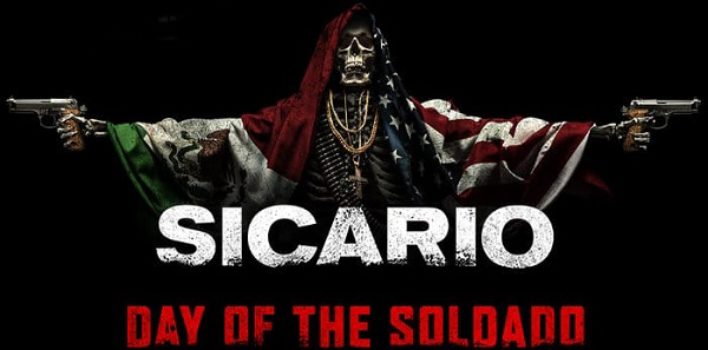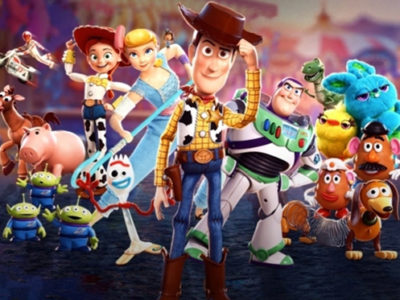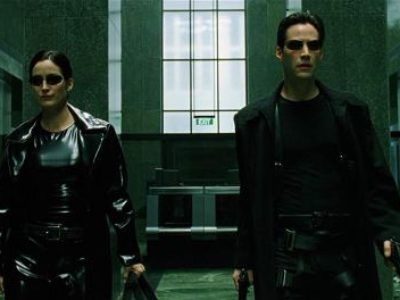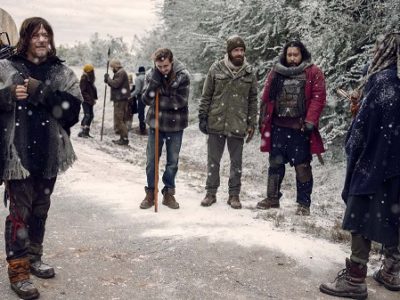Review| Sicario: Day of the Soldado
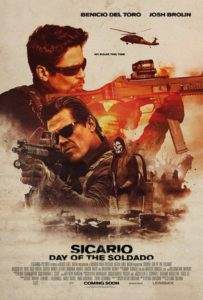 With 2015’s Sicario, Taylor Sheridan made his mark as a screenwriter to watch. When paired with Director Denis Villeneuve (Arrival, Blade Runner 2049), it made for a suspense-filled crime drama that was relevant to the time while also reminding us all of Bencio Del Toro’s intimidation factor. Sheridan is back for Day of the Soldado, and although he’s paired with the less acclaimed Stefano Sollima in the director’s chair, the duo manages to recreate most of the suspense while doubling down on the action.
With 2015’s Sicario, Taylor Sheridan made his mark as a screenwriter to watch. When paired with Director Denis Villeneuve (Arrival, Blade Runner 2049), it made for a suspense-filled crime drama that was relevant to the time while also reminding us all of Bencio Del Toro’s intimidation factor. Sheridan is back for Day of the Soldado, and although he’s paired with the less acclaimed Stefano Sollima in the director’s chair, the duo manages to recreate most of the suspense while doubling down on the action.
South American drug cartels have changed the game. Human trafficking is the name of the game, and that includes terrorists. The drug war on the U.S.-Mexico border now falls under the broad umbrella of the war on terror, and the means to wage that war are increased dramatically. Del Toro returns to his role as Alejandro, the titular Sicario (hit man), and this time he’s taking more of a front seat in terms of planning and execution of the CIA’s mission to escalate a cartel war on the south side of the border. Matt Graves (Josh Brolin) is again at the helm of this mission, for better or worse.
The inclusion of Alejandro as a prime player from the outset removed certain elements of mystery and complexity that the first film excelled in, but to a degree it was necessary. Audiences familiar with Sicario know his background and the impact the cartel had on him personally, so bringing him out of the shadows makes sense from a narrative standpoint. Unfortunately this turn comes off as blatant disregard for law and Mexican sovereignty rather than an under the radar attempt to gain leverage over the cartel. Specifically, illegal actions even on U.S. soil are done in Mexico under the guise of playing two sides against one another. When Alejandro chooses for himself the line he will not cross in executing the CIA’s illegal mission south of the border, he serves as a stand-in for a large segment of American society today as scrutiny on agencies such as ICE increase and lines are drawn between what the law allows and what we’re willing to do as a people.
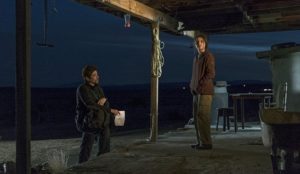 With his newfound morality, the film finds itself in the precarious position of asking the audience to sympathize with Alejandro because he will not do what he had no problem doing in the first film. It’s not quite an exact replica because a personal relationship exists with the “target” where it hadn’t before, but all the same justifications apply. This will help stop the cartels, this will avenge the deaths of his family, etc. So we should ask ourselves if we side with Alejandro’s change of heart because what he’s doing is wrong at the outset, or because he’s the only semi-likeable character available in a film that is otherwise bleak from beginning to end?
With his newfound morality, the film finds itself in the precarious position of asking the audience to sympathize with Alejandro because he will not do what he had no problem doing in the first film. It’s not quite an exact replica because a personal relationship exists with the “target” where it hadn’t before, but all the same justifications apply. This will help stop the cartels, this will avenge the deaths of his family, etc. So we should ask ourselves if we side with Alejandro’s change of heart because what he’s doing is wrong at the outset, or because he’s the only semi-likeable character available in a film that is otherwise bleak from beginning to end?
Therein also lies the rub as to how we might react to certain political decisions made today. Are we outraged at the act itself, at a moral atrocity that is objectively wrong no matter who does it? Or are we only reacting with horror when it’s someone we despise that is doing it? If it were someone we could relate to better, might we give them a pass? This is where the film falls, it feels, with using Alejandra as the protagonist. A personal connection with him and sympathy for his family is used to excuse his past misgivings and brush them aside. Without a true protagonist, the film is left in the murky and gray ambiguity of morality which spawns the evil in the hearts of those on both sides of the border.
 With all that said, the intensity in key scenes is all still there. At one moment we’re listening to field strategy, at the next we’re along for the ride on the edge of our seats. Del Toro and Brolin are still great in their roles, and we get a chance to see them interact a bit more in this. Finally, Day of the Soldado fully dives into human trafficking as the new wages of the war. Whether it be terrorists or people seeking a better life, the industry which puts a price on the heads of individuals in order to ferry them to freedom and use them as mules is dangerous and violent. Day of the Soldado asks if we must also be dangerous and violent to meet that threat.
With all that said, the intensity in key scenes is all still there. At one moment we’re listening to field strategy, at the next we’re along for the ride on the edge of our seats. Del Toro and Brolin are still great in their roles, and we get a chance to see them interact a bit more in this. Finally, Day of the Soldado fully dives into human trafficking as the new wages of the war. Whether it be terrorists or people seeking a better life, the industry which puts a price on the heads of individuals in order to ferry them to freedom and use them as mules is dangerous and violent. Day of the Soldado asks if we must also be dangerous and violent to meet that threat.


